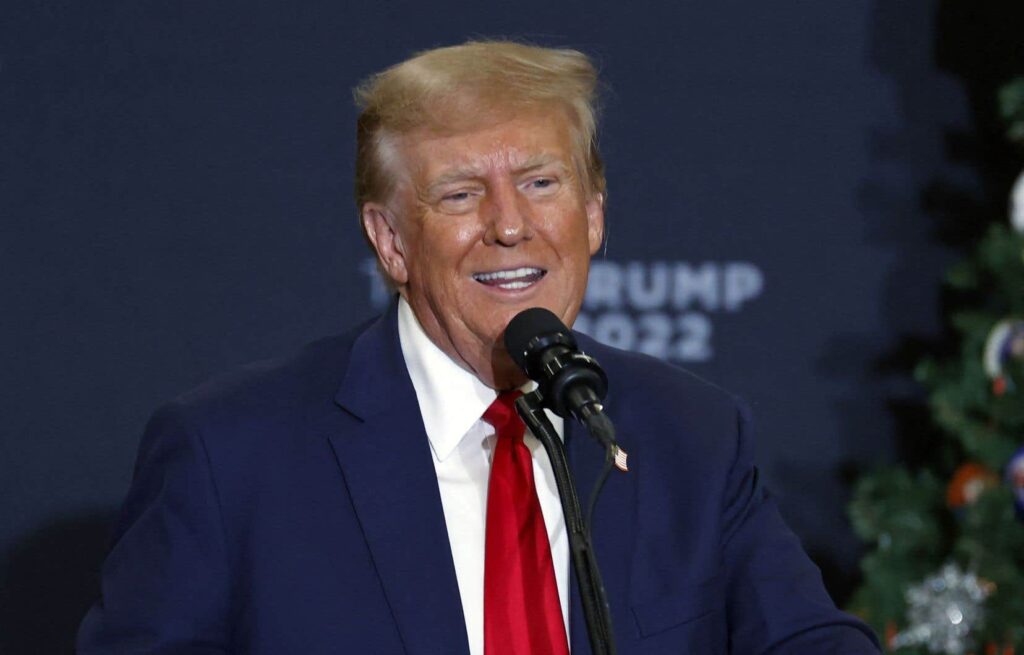On the eve of the Republican primaries, which will take off on January 15 with the Iowa caucuses, the confidence of the party’s voters in the electoral process aimed at determining who will represent them in the next presidential election seems more and more fragile, reveals a poll by the NORC Center for Public Affairs Research conducted on behalf of the Associated Press.
And this climate of distrust now sows deep doubt among most of them about the future of their training, also indicates the survey, the results of which were released on Wednesday.
Approximately two-thirds of Republicans express doubt about the counting of their vote during the primaries which are beginning, with 32% declaring that they have “only a little” or “no” confidence in the electoral framework in place and 31% showing “moderate” confidence in the way ballots will be managed by electoral authorities.
Undoubtedly a consequence of Donald Trump’s repeated declarations on fraud of which he says he was a victim in 2020, without ever having succeeded in providing proof, this discrediting of the electoral process within the Republicans goes even further: three quarters of among them believe that the ballots during the presidential election in November 2024 will not be counted accurately. A perception shared by 46% of Americans, all political colors combined.
Remember that since the populist’s defeat in 2020, allegations of electoral fraud propagated by the ex-president and his entourage have been systematically rejected by the courts, including by several judges appointed by Donald Trump.
However, far from allaying the fears and uncertainties of American voters about the state of their democracy, the long electoral race which will officially be launched in the coming days in the United States risks above all fueling this climate of doubt fueled and exploited by the American conservative right. In fact, a quarter of Republicans believe that their party does not offer a fair process to properly select its candidate for the final contest next November. 19% of Democrats think the same thing. Nearly half of Americans are concerned about how the country’s leaders are chosen.
Pessimism
At the start of this new electoral campaign, former President Donald Trump still remains the preferred choice of Republicans in the polls, despite 91 charges against him and the threat in several states, including Colorado and Maine, for not being able to appear due to his involvement in the Capitol insurrection on January 6, 2021. That day, he started a riot there, while he was still stationed at the White House, with the firm intention of compromising the certification of the vote by the legislative power, vote confirming the victory of Joe Biden. A Joe Biden still well in the saddle to represent the Democrats in this election. The man faces symbolic opposition in the primaries organized by his party.
Still, the prospect of a rematch between the two men hardly seems inspiring for the Americans, according to this survey, launched between November 30 and December 4 in a pool of 1,074 American adults. Indeed, 54% of those questioned say they are very pessimistic for the future of the Republican Party, as a tumultuous presidential campaign begins, an opinion which has been growing in poll after poll since 2021. At the time, 46% of those questioned Americans shared this bleak outlook for the conservative party with its extremist and anti-democratic leanings.
Conversely, at the end of 2023, 45% of voters said they were worried about the future of the Democratic Party, compared to 38% two years earlier.
And clearly, it is with holding their breath that Americans are preparing to enter this new presidential race, with 67% of them believing that this election will be crucial for the future of democracy in the United States. , 62% even believing that the threat to this democracy will depend on the candidate chosen next November.
Worse, nearly 20% of Americans even seem to have already thrown in the towel, affirming that the next presidential election will ultimately change nothing, since their democracy is, according to them, already seriously broken, the survey indicates.

